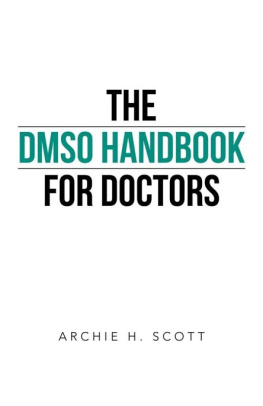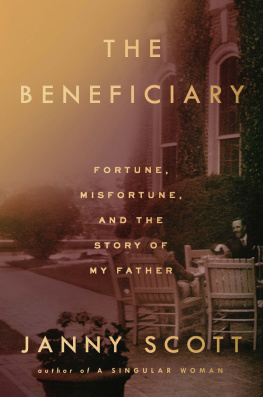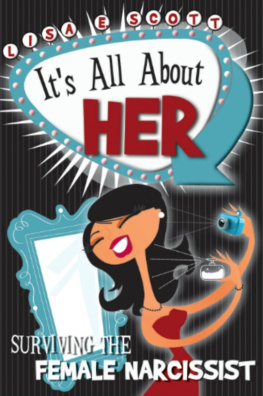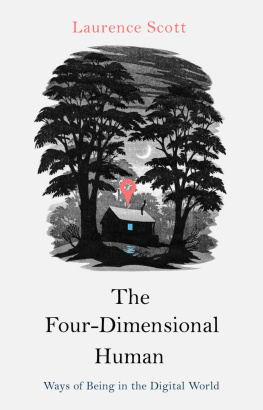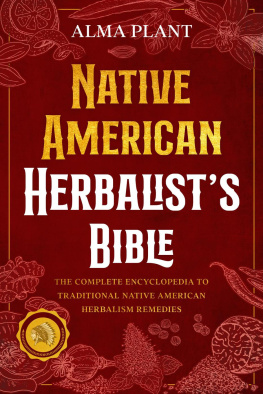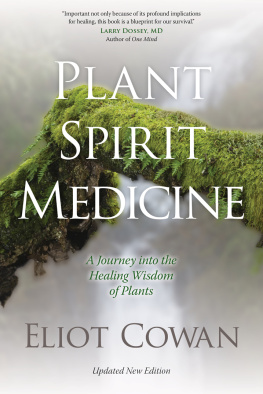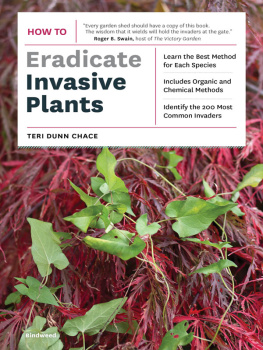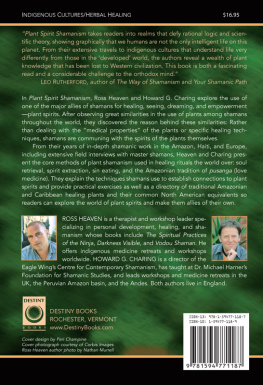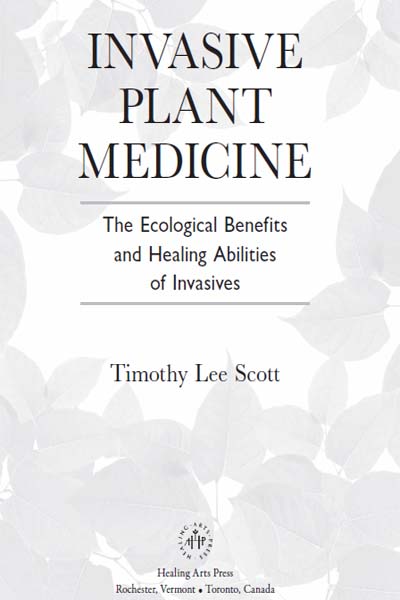

Vegetus Vigoratus Veritas
To All the Lively Ones Who Speak the Truth, Yet Continue to be Trampled Upon
The Piously Prolific Pioneering Plants
INVASIVE PLANT MEDICINE
Timothy Lee Scott shows how wrongheaded it is to single out other species as harmful. In nearly every case, the blame for damage done by so-called invasive species lies with us, when we have created an imbalance that opens opportunities for new species to move in. Tim goes beyond simply removing blame from our fellow species. He shows how erstwhile invaders can teach us how to heal damaged ecosystems and ourselves.
TOBY HEMENWAY, AUTHOR OF GAIA'S GARDEN:A GUIDE TO HOME-SCALE PERMACULTURE
This is an important, insightful book that should be read by all involved in herbal medicine or plant conservation, and more importantly, for all of us who should be questioning authority. In these times of rapid change it is refreshing to find such competent questioning of established truths. Thanks, Tim!
DAVID HOFFMAN, BSC, FNIMH,MEDICAL HERBALIST AND AUTHOR OF MEDICAL HERBALISM AND HERBAL PRESCRIPTIONS AFTER 50
So, be warned, this is a dangerous book. Tim Scott will change how you see invasives, will make you question what you have been taught about them, force you to reexamine what you have read in newspapers, and demand you look more closely at what experts have said.
STEPHEN HARROD BUHNER, AUTHOR OFTHE SECRET TEACHING OF PLANTS
Acknowledgments
I AM GRATEFUL FOR all of the help I had along the way that has made this book possible. Many people have assisted this work, some through their mere presence, others through their feedback, some through their writings, and others through fieldwork and study. I give thanks for all of those who have come before in service of the natural world and who have passed down knowledge about these plants for thousands of yearsthe poets, healers, gardeners, and visionaries. I give thanks to the many voices who have spoken for invasives and dared tread the treacherous path of standing up on behalf of these mistaken plants. I am indebted to those who took time out of their busy lives to help color the plants with valuable knowledge and firsthand experience, and I know I have missed many, and I apologize that I cannot thank everyone individually.
First and foremost, I am grateful for my wife, Colleen, and her endearing presence and enduring patience as I embarked on this newfound journey into insanity called writing a book. For my children, Osha and Rowan, who continually remind me of whats most important in life. Also, I am thankful for my parents and their constant support in my life choices and for letting me roam wild in the woods.
I give many thanks to my friends Rebecca Sunter and Monique Bonneau for their continued encouragement and critique, from the beginning as an article with a tiny seed of an idea, to the end of a full-length manuscript. Beccas keen eye in reviewing my manuscript tied many loose ends and helped me explore the deeper layers of writing as art, and Moes wonderful illustrations captured the spirit of the plants through line and color. And much appreciation to my friend and soul sister Julie McIntyre, who provided photos of some of the southwestern plants.
I am grateful to Jon Graham and Inner Traditions Bear and Company for seeing the potential in this book and setting me forth on this adventure. Many thanks to the remediation expert Paul Schwab for finding the initial phytoremediation studies that confirmed my beliefs of the ecological benefits of invasives and pointed me in the right direction. I am thankful for all of the elders in the American herbal renaissance that have tied together the herbal traditions from all over the world, held the spirit of the plant medicines intact, and helped show the value of and compassion for these widespread plants. I appreciate the generosity of Todd Hardie and his sharing of his love of the bees and of purple loosestrife, and for Steven Foster, who rounded out the photos I needed with his superb plant eye. I thank Dale Pendell for his high plant poems and green-wise thinking that takes me on trips each time I read them. And Im especially honored by Rosemary Gladstar taking time to share precious jewels of herbal wisdom for this book.
Finally, deep gratitude and affection goes to Stephen Buhner, for without his work, none of this would have been possible.
Contents
Chapter 1
Chapter 2
Chapter 3
Chapter 4
Chapter 5
Chapter 6
Chapter 7
Chapter 8
Chapter 9

Foreword
Analogy can connect body and mind, objective space and subjective space, and the animal, plant, and mineral realms in a way logic cannot. It is the key to the groundbreaking correlations Le Brun makes between the environmental degradation of our physical world and the ravages suffered by the imaginal realm of our minds. The relationship between the disappearance of the great mammals and the blue whale and the great rebels of times past is the same insidious and pervasive decay as the depreciation and adulteration of language and the genetic modification of the foods we eat. In all the cases she cites, it is clear that the shackles placed on the human imagination have made possible the environmental and social degradation that pervades our modern world. For Annie Le Brun, the most horrendous ecological catastrophe is found in the growing impossibility to imagine the symbolic exchange that never stops occurring between ideas, beings, and things.
JON GRAHAM, TRANSLATOR'S FOREWORD, THE REALITY OVERLOAD: THE MODERN WORLD'S ASSAULT ON THE IMAGINAL REALM
CENTRAL TO OUR TIME is the growing recognition that the linear mind, what Robert Bly sometimes refers to as the statistical mentality, has reached the limits of its perceptual thought. This is especially true when it comes to understanding the subtle and all-pervasive interdependencies, communications, and layered subtleties of the Natural world. In other words, applying A toB to C thinking to our world doesnt work, in fact, the great preponderance of evidence is showing that not only does it not work, it is also the source of a great many of our ecological problems.
The most important things in the ecological functioning of this planet, it turns out, tend to be invisible, that is, not readily perceivable, to linear thinking. Our inability to work with these crucial invisibles can be traced to a problem in the assumptions that underlie the type of thinking that most of us in the West are trained in from the age of six onward.
Unfortunately, those on the left are as equally guilty of this as those on the right; the problems facing us will not be solved by simplistic social injunctions such as recycling or the use of compact fluorescent lightbulbs. Those types of solutions come out of the same kind of linear thinking that got us into this mess. It just uses a different power dynamic than is used on the right: a social shaming that later is translated into heavy-handed legislation that, it is insisted, will solve our problems if only everyone is forced to comply with it. That approach is simply too superficial, too unaware of the generative causes of most of the problems, and too generative itself of unexamined consequences to be of use. It allows the majority of people to engage in simple behaviors that, ultimately, support them escaping the much more difficult, and necessary, task of deeply examining the complexity of our ecological problems.
Next page



